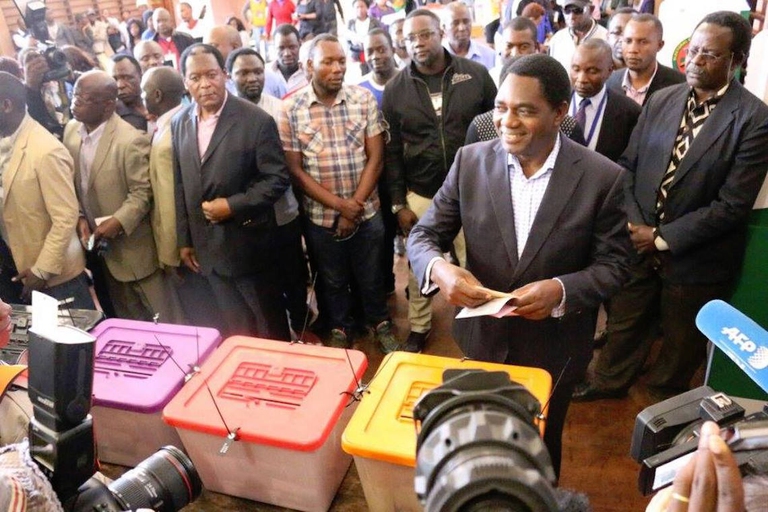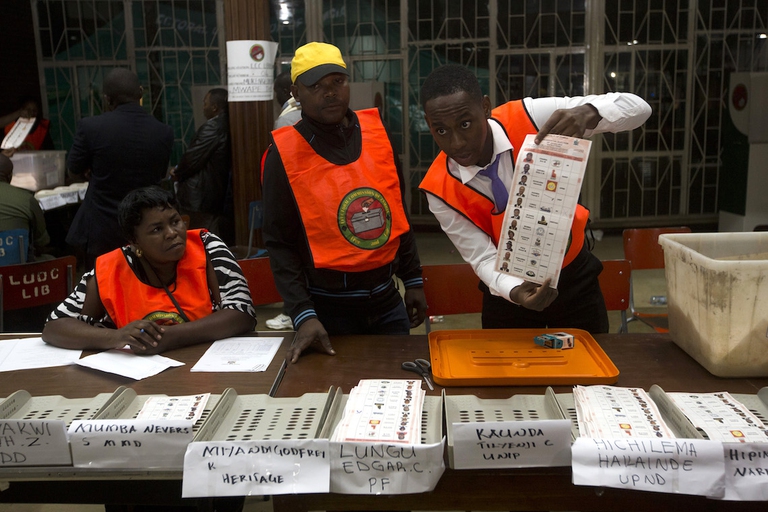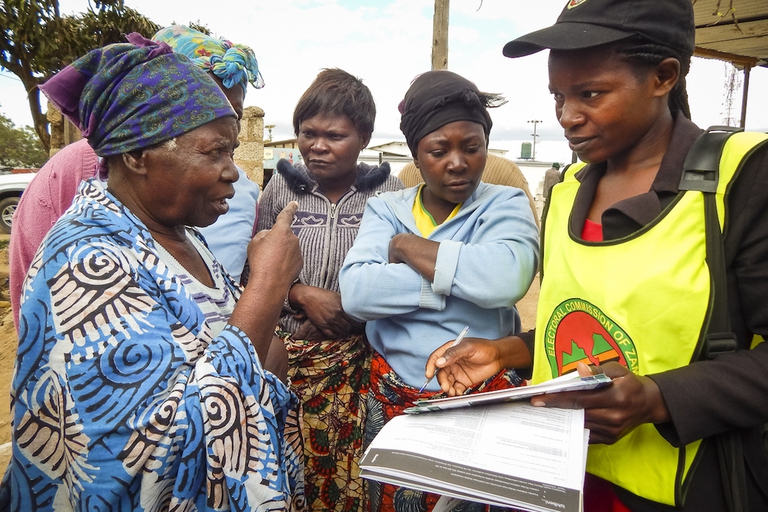
From Nepal to Morocco, from Madagascar to Peru, many antigovernamental protests that took place these weeks were led by Gen Z protesters.
Incumbent President Edgar Lungu of the Patriotic Front (PF) secured 50.35 per cent of the vote in the elections held in Zambia on the 10th and 11th of August, just over the 50 per cent threshold needed to avoid a second ballot. His principal rival, Hakainde Hichilema, leader of the United Party for National Development (UPND) – who
Incumbent President Edgar Lungu of the Patriotic Front (PF) secured 50.35 per cent of the vote in the elections held in Zambia on the 10th and 11th of August, just over the 50 per cent threshold needed to avoid a second ballot. His principal rival, Hakainde Hichilema, leader of the United Party for National Development (UPND) – who alleges the elections were fraudulent and has brought the case to court –received 47.67 per cent of consensuses.
The presidential and parliamentary elections, which saw a total of nine presidential candidates compete against each other, was marked by a significant turnout of over 56 per cent. Around 6.7 million people were registered to vote with youths around 60 per cent.
“We’re happy to see so many people coming to vote, this shows that Zambians understand the importance of elections and they value their democratic rights,” said Kyenga Cecile, chief election observer of the European Union’s Election Observation Mission.
For the first time a presidential candidate was required to get more than 50 per cent of the votes to be declared the winner. Should they have failed to get this portion of the vote, a second ballot would have taken place within 37 days.
The vote was historic also because it was the first time candidates had running mates. This is in order to avoid by-elections in case the president can’t continue their mandate. For example in the past decades two sitting presidents died whilst in office and without running mates elections had to be held again.
Opposition parties accused the PF of not being able to contain the economic crisis caused by a slump in copper prices, the country’s biggest source of revenue, with the country’s currency, the kwacha, losing value. In addition, droughts have triggered load-shedding (where localised blackouts are orchestrated to avoid a complete shutdown of the power grid).
The country experienced several instances of campaign violence a few weeks before the election, prompting the Electoral Commission of Zambia to halt campaigns in the capital Lusaka and in Namwala district: according to the police, at least three people were killed. In addition, 150 people have been arrested in protests against the election results. A lot is at stake and the country needs better law and order for the economy to stabilise. The new president faces a tough task tackling high costs of living and high rates of unemployment.
Siamo anche su WhatsApp. Segui il canale ufficiale LifeGate per restare aggiornata, aggiornato sulle ultime notizie e sulle nostre attività.
![]()
Quest'opera è distribuita con Licenza Creative Commons Attribuzione - Non commerciale - Non opere derivate 4.0 Internazionale.
From Nepal to Morocco, from Madagascar to Peru, many antigovernamental protests that took place these weeks were led by Gen Z protesters.
Joe Biden breaks ahead. Sanders falls but stays in the race. Bloomberg is hanging by a thread. Warren is invisible. The final results of Super Tuesday, a key day in the Democratic primaries to choose the candidate for the the US presidential elections.
“Local leaders have to ensure that changes happen. Every action a city takes for climate has an impact on the whole world”. We interviewed Ekrem İmamoğlu, Mayor of Istanbul, about mayors’ key role in tackling the global climate crisis.
Il giudice Steven Reed è diventato sindaco della città del profondo Sud, culla del movimento per i diritti civili.
A successful day for Greens and nationalists, while traditional parties suffer. The outcome? A European Parliament divided into homogeneous “slices”. The final results of the European elections 2019.
From 23 to 26 May voting will take place in the European Elections 2019. Who can vote, who the candidates are and how to vote to elect the 751 representatives at the European Parliament in Strasbourg.
After a series of diplomatic assignments, including with the United Nations, Sahle-Work Zewde has become the first female president of Ethiopia.
The House goes to the Democrats, the Senate remains Republican. But the midterm election results are positive especially for women. How the vote for Congress and 36 governors went.
In the midterm elections of the 6th of November, in 36 out of 50 United States a new governor was chosen on top the members of Congress. Here are all the results of the gubernatorial races.










